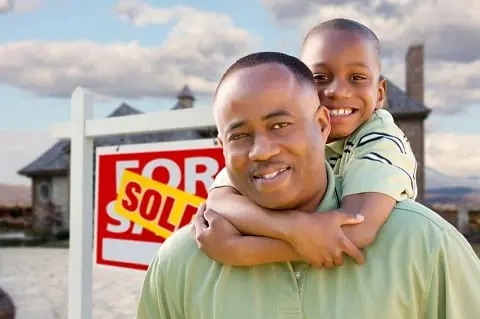
No one wants to work without pay and Realtors, understandably, are no exception.
That’s why it’s important for Realtors who want to profit from new homes sales to be familiar with the timelines involved in new home construction. These timelines determine not only when the buyer will close the purchase, but also when the Realtor’s commission will be paid.
Timelines vary from builder to builder and community to community and can also depend on such other factors as the buyer’s financing and choices of amenities, fixtures and finishes.
Frankly, the wait to get paid can be long. But it doesn’t have to be and it isn’t necessarily longer than the timeframe to sell a used home. That’s especially true in communities where the supply of homes for sale is constrained and buyers can take many months to locate a property they like, says Brent Anderson, a spokesperson for Meritage Homes, which builds new homes in Arizona, California, Colorado, Florida, North Carolina, South Carolina, Tennessee and Texas.
Production or Custom?
Perhaps the most important factor in the timeline is whether the buyer wants to purchase a custom or production home, says Ken Pozek, a Realtor at Keller Williams Realty in Northville, Mich.
A custom home is a one-of-a-kind property built either “on spec” — in the expectation that someone will buy it ready-made — or to fit a specific buyer’s personal needs, wants and budget.
Production homes are built in new housing developments where builders plan to sell many homes with similar designs and a limited number of floor plans.
Production Timeline
It’s easy to understand the timeline for a production home since the builder can give the buyer a map and tell them to choose the lot. The buyer can then say, “We want to move in July, so let’s back into that” on the calendar, Pozek says.
If a new home is already completed, the timeline to close can be as short as 10 days or two weeks, Anderson says.
If the home is under construction, it could take a few days or weeks or even up to four or five months to complete, depending on whether the community has been developed, the lot is ready to build on, the buyer’s financing has been lined up and construction has been started, Anderson says.
Builders have no reason to delay. As Anderson explains, “We have as much, or more, vested interest as the Realtor does in making sure the process moves along as quickly as possible, because we don’t want our capital tied up.”
Custom Timeline
Realtors who want to profit from new homes sales need to be familiar with the timelines involved in new home construction. These timelines determine not only when the buyer will close the purchase, but also when the Realtor’s commission will be paid. If a custom home is already built, a purchase can close in 30 to 45 days on much the same timeline as an existing home, says Steve Appel, a Realtor at Berkshire Hathaway Home Services in Wesley Chapel, Fla.
If a custom home hasn’t yet been started, buyers can take a year, two years or even longer to complete their purchase. That’s because vacant lots aren’t always readily available in existing communities, so buyers must locate a tear-down that’s within their budget.
“They’re searching for lots, trying to find that reasonably priced home that they’re willing to pay $400,000 to knock down and build (a new) one in its place,” Pozek says.
Early Payment
Sometimes, Realtors can get paid sooner. “Custom homebuilders sometimes pay at the slab because typically the deal is closed, at least on the land part for a construction-to-perm loan,” Appel says. “At the slab” loosely means when the foundation is finished.
Pozek says some builders will advance half a Realtor’s commission upfront, but the money must be repaid if the buyer doesn’t close. “I never take it because I don’t want to be caught having to pay it back,” he says.
For others, however, that strategy might make sense.
Timeline Tracking
The builder’s in-house sales rep is the main point of contact for Realtors who wants to keep track of a buyer’s new home construction process. In-house reps can’t promise a specific closing date early on because construction can be affected by weather and other delays. But Anderson says it’s part of that salesperson’s job to keep the buyer and Realtor appraised of the status.
“They work behind the scenes with the builder and schedulers to stay on top of where that home is in the construction process. Once we are far enough along, they will set the closing date,” Anderson says.
Helping Buyers
Realtors can also monitor the construction by accompanying the buyer to meetings with the builder. “Usually there’s a pre-construction meeting, a pre-drywall meeting and then final orientation before you close,” Appel explains.
Another way the Realtor can speed up the process is to encourage the buyer to take advantage of incentives to use the builder’s affiliated financing company, Anderson says. “The biggest thing a Realtor can do is to help a buyer get prequalified and educate them not to go out and apply for new credit cards or buy a new car or a whole bunch of furniture before they close,” he says.
The Realtor also can help the buyer understand the timelines in the contract and make timely decisions about flooring, carpets, fixtures and other options.
Once those choices are made, the construction can move forward to completion, close and a paid commission.

